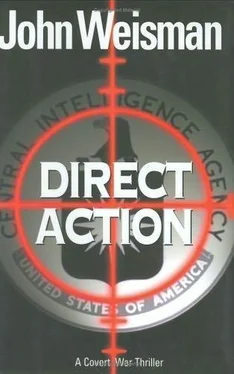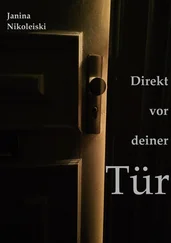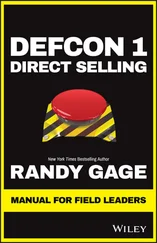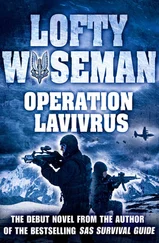Didn’t people understand that HUMINT-for HUMan INTelligence gathering-was like paleontology? You probed and you dug and you prodded and you excavated for what seemed like forever. And then, after an excruciatingly and often interminable period of time, you might-if you’re smart, and talented, and above all lucky-you might discover a tiny intelligence fossil that is, perhaps, a single part of a much-larger life-form. And yet from this microscopic shard-which may, by the way, have been planted by an evil archaeologist working for one of your adversaries-Congress and the 9/11 Commission, and, for that matter, the misguided and ill-informed American public insist it is not only possible to divine what sort of creature the fossil could have come from, but also tell you exactly where the entire skeleton of the creature can be found.
In real life, the recruitment process could take months of careful gumshoeing to make sure the opposition wasn’t screwing with you. In the field, you had to watch your emotions so you didn’t get sucked in. In the field, enthusiasm was the enemy of thoroughness. You developed a mental sonar that was never turned off. That’s what had killed McGee. He lacked the sensors to realize he was developing a double. Or a dangle. Or a provocateur. Or an assassin. Achieving that highly developed defensive awareness took years.

It looked easy in the movies. Or in fiction. But in real life, becoming a productive, streetwise case officer doesn’t happen overnight. And spotting, assessing, developing, and then recruiting a single agent is a laborious, time-intensive, painstaking process. Charlie Hoskinson, who’d recruited the of the Syrian president, said it had taken him the better part of his three-year-tour in Damascus to do so. Bronco Panitz, who was 4627’s CEO, had been promoted to the Senior Intelligence Service on the strength of two Soviet recruitments, a process that had taken him more than four years on two continents-only to lose them both to Aldrich Ames.
So when the 9/11 Commission or the fools on the House or Senate intelligence oversight committees wrote reports with prose that read it is imperative for CIA to increase its human intelligence capabilities immediately, Tom and the rest of his fellow intelligence professionals had to laugh. George Tenet-a disaster as DCI-had boldly told Congress that the DO wouldn’t be up to speed for another five years. Everyone at Langley who had an ounce of sense knew Tenet grossly understated the case to make himself look better. The evidence? Tom’s own curriculum vitae belied the DCI’s assertion.
Tom had spent seventeen years and seven months at CIA. He’d entered training just after Labor Day of 1985, recruited straight out of Dartmouth College. In late March 1986, he’d been assigned to headquarters-spending seven months at NE Division as a desk officer trainee to learn the bureaucratic ropes. During that time, he managed to take a number of the advanced tradecraft courses offered in Washington: lock-picking, secure communications, and the “guerrilla driving course” out in West Virginia at Bill Scott Raceway, where he learned how to run roadblocks and make bootlegger’s and J-turns. Then it had been a year at the Foreign Service Institute’s language school in Rosslyn, Virginia, followed by nineteen months in Tunis, in FSI’s immersion Arabic program.
Tom’s first overseas tour hadn’t commenced until June 1989, when he began work under consular cover at the Cairo embassy. And even then he was a greenhorn with no field experience. And little chance of receiving much in the immediate future.

His chief in Cairo, John, was a prissy, non-Arab speaker who’d spent eighteen years as a reports officer before being brought into the Directorate of Operations under DCI Robert Gates’s “cross-fertilization” program that larded DO with inexperienced analysts, academic reports officers, and secretaries-all in the name of EEO diversification. A GS-15 on his second (and final) go-round for promotion to the Senior Intelligence Service, got so fidgety when the subject of recruitments was brought up he was known around the embassy as Twitch. The situation wasn’t improved by Tom’s immediate superior, a chronic alcoholic named McWhirter who signed out to interview developmentals but actually spent his afternoons sipping vodkas on the rocks in the bar of the Méridien.
No one in Cairo showed any inclination to mentor the first-time case officer. So Tom sat in his teller’s cage and stamped visas, learned as much about Cairo as he could, worked hard to improve his conversational Arabic, and pursued his spycraft through trial and error-mostly, he realized later, through error.
In point of fact, Tom didn’t receive any decent mentoring until after he’d arrived in Paris in July 1992. There, the deputy chief, Sam Waterman, took the youngster under his wing. He taught Tom how to go black-slip out from under DST surveillance-by exploiting the seams in the French domestic security agency’s rigidly defined regional areas of coverage. He allowed Tom the freedom to occasionally push the edge of the envelope when it came to recruiting and running agents with less-than-squeaky-clean backgrounds. And perhaps most important, he’d forced Tom to spend long hours working on his reporting and interrogation skills.
Waterman had schoolmarmishly insisted that Tom spend every bit of his spare time-and there wasn’t a lot of it-reading old reports so that he’d have absorbed all the background he needed for his agent handovers. Long before Tom met his first handover, he’d memorized three years of reporting about the man. Waterman had grilled him on the material before he’d allowed the handover to proceed. The interrogation hadn’t been pleasant, either.
It didn’t stop there. Under Waterman’s incessant tutelage, Tom wrote and then rewrote every report half a dozen times-sometimes more. Waterman was merciless. “You’re not providing any frigging details, Tom.” Waterman would pound the desk. He was a big man and he knew how to use his size to intimidate “You were in a restaurant. What did it look like? What were the surroundings? Was there any sign of DST? Your developmental was ten minutes late. Why? Did his explanation satisfy you? Was he hiding something? What did your developmental wear? Was he wearing anything he hadn’t worn before? What about new jewelry? How did he appear to you? What emotional traits did he display? What did his body language tell you? Did he show any of the physical signs of deception or guilt? Dry mouth? Was his face pale? Did you see any throbbing in the vein on his neck or the backs of his hands? Was his voice steady? What were his feet doing while the two of you were speaking? I don’t see any frigging hints about any of those reactions in your reporting.”
Now he’d had a mere three days to prepare-to construct a scenario, develop a persona, get all his physical and mental ducks in the proverbial row. Not enough time. Not by far, given the stakes. But it was all the time there was.
He’d followed Reuven’s advice to the letter. Popped the question at six Monday morning. By eight that night, MJ was sporting a magnificent two-point-three-carat diamond set off by two quarter-carat baguettes, all in a regal but simple platinum setting. She couldn’t stop looking at the damn thing and smiling.
Tuesday afternoon, Reuven had used his connections to put MJ on the overbooked Air France flight to Paris-bumped to first class. She’d spend the night at rue Raynouard, get the rest of her stuff, then continue on to Washington Thursday. The radiant look on her face as she went through the departure gate was ample evidence that Tom had indeed provided her with perfect cover for status.
Читать дальше














